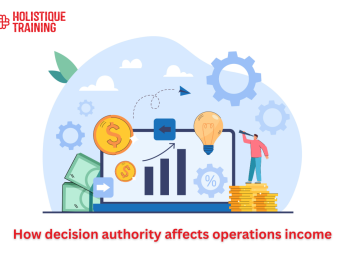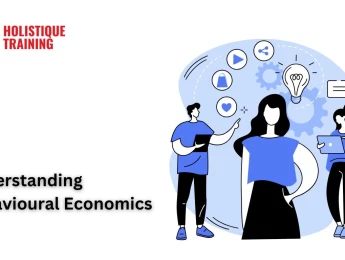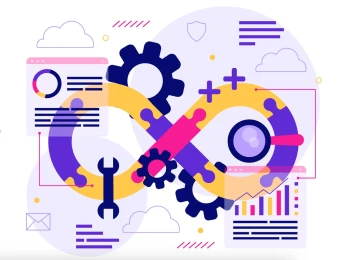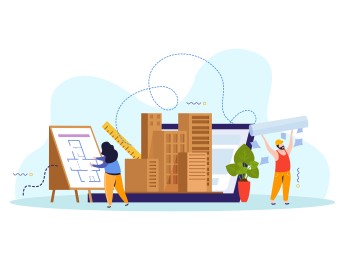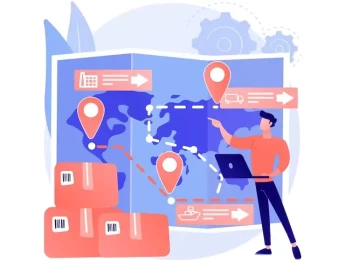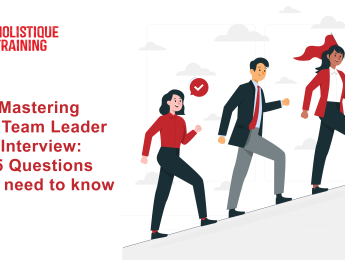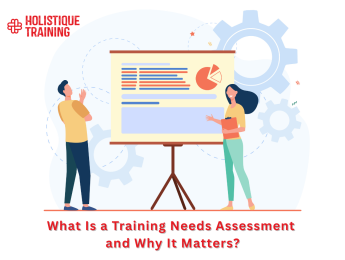- Table of Contents
- Introduction
- Facilitation Skills for Trainers and Leaders
- 1. Active Listening
- 2. Effective Communication
- 3. Questioning Techniques
- 4. Adaptability
- 5. Time Management
- 6. Empathy and Emotional Intelligence
- 7. Conflict Resolution and Mediation
- 8. Digital Literacy and Technical Proficiency
- How Can Trainers and Leaders Improve Their Facilitation Skills?
- 1. Continuous Learning
- 2. Reflective Practice
- 3. Utilising Technology
- 4. Developing Virtual Icebreakers
- 5. Encouraging Active Participation
- 6. Networking and Community Engagement
- 7. Mentorship and Peer Collaboration
- Facilitating Diversity and Inclusion
- 1. Cultural Sensitivity Training
- 2. Inclusive Language
- 3. Safe Spaces for Dialogue
- 4. Intersectionality Awareness
- 5. Diverse Representation
- 6. Addressing Unconscious Bias
- 7. Empowering Marginalised Voices
- 8. Celebrating Diversity
- 9. Handling Disagreements Respectfully
- 10. Continuous Feedback and Adaptation
- Facilitation in Crisis Management
- 1. Maintaining Calm and Composure
- 2. Transparent and Timely Communication
- 3. Empathetic Listening
- 4. Decisive Decision-Making
- 5. Conflict Resolution and Emotional Support
- 6. Strategic Resource Allocation
- 7. Maintaining Focus on Goals
- 8. Scenario Planning and Preparedness
- 9. Post-Crisis Evaluation and Learning
- 10. Team Building and Resilience Building
- Conculsion
Introduction
Online training and virtual team leadership have become increasingly prevalent in today's digital era. As a result, trainers and team leaders must adapt their facilitation skills to engage and guide participants in an online environment effectively. The ability to facilitate discussions, manage group dynamics, and foster collaboration is vital for achieving desired learning outcomes and team productivity. In this blog post, we will explore the importance of facilitation skills for trainers and leaders and provide tips on enhancing their abilities online.
Facilitation Skills for Trainers and Leaders
Effective facilitation skills are the linchpin of successful training and team leadership in the ever-expanding digital landscape. As the paradigm of work and learning shifts toward virtual spaces, trainers and leaders find themselves at the forefront of this transformative journey. Nurturing a thriving online community requires unique skills, each designed to bridge the virtual gap and foster meaningful connections. Let's delve deeper into these fundamental skills that form the bedrock of proficient facilitation in the digital age:
1. Active Listening
Active listening is not just about hearing words; it’s about deciphering the underlying emotions and intentions behind them. In virtual settings, where non-verbal cues might be limited, skilled facilitators pay keen attention to participants' tone of voice and the choice of words. By actively engaging with what participants say, as well as what they don’t say, facilitators can address concerns, acknowledge contributions, and create a nurturing atmosphere of trust and understanding.
2. Effective Communication
In the realm of online facilitation, clarity is king. Clear and concise communication ensures that instructions are not just heard but comprehended. Virtual platforms often require trainers and leaders to be adept at articulating complex ideas with simplicity, employing visual aids when necessary, and encouraging participants to seek clarification. Additionally, a well-timed pause can allow participants to digest information, promoting better understanding and engagement.
3. Questioning Techniques
The art of questioning lies in its ability to provoke thought and stimulate discussion. Online facilitators master framing questions that encourage participants to delve deeper into topics, fostering critical thinking, one of the top skills that will gain importance in the next few years, according to Workshopper. Thought-provoking queries inspire active participation and pave the way for diverse perspectives, enriching the collective learning experience.
4. Adaptability
Flexibility is the cornerstone of effective facilitation in the dynamic digital landscape. Trainers and leaders adept at adapting their approaches to suit diverse learning styles and unexpected challenges can seamlessly navigate the virtual realm. Whether it’s altering the pace of a session to accommodate comprehension or pivoting strategies to address unexpected technological glitches, adaptability ensures that the facilitation process remains smooth and uninterrupted.
5. Time Management
Time management is more than just adhering to a schedule; it’s about optimising every moment of the virtual interaction. Proficient facilitators allocate time judiciously, balancing activities, discussions, and breaks to maintain participants’ engagement levels. They gauge the pulse of the session, ensuring that each segment receives adequate time for exploration and discussion. Moreover, effective time management allows facilitators to steer discussions toward productive outcomes, maximising the learning potential of every participant.
6. Empathy and Emotional Intelligence
In the digital realm, empathy emerges as a superpower for facilitators. Understanding participants' emotions, anxieties, and motivations is essential for creating a supportive online learning environment. In fact, emotional intelligence is credited with contributing to approximately 58% of job success, according to ZipDo. Skilled facilitators empathise with individuals' challenges, recognising that each participant brings unique perspectives and experiences. By demonstrating empathy, facilitators can address sensitive concerns, validate participants' feelings, and establish a sense of belonging within the virtual community. Emotional intelligence and empathy allow facilitators to navigate delicate situations, resolve conflicts, and provide constructive feedback, fostering a culture of respect and mutual understanding among participants.
7. Conflict Resolution and Mediation
Conflict is inevitable in any group interaction, and online environments are no exception. Skilled facilitators can recognise brewing conflicts, address them promptly, and transform disagreements into opportunities for constructive dialogue. Conflict resolution involves active listening to the concerns of conflicting parties, acknowledging their perspectives, and guiding them toward a mutually agreeable solution. Facilitators act as mediators, facilitating open communication, encouraging empathy, and helping participants find common ground. By adeptly resolving conflicts, facilitators maintain a harmonious learning atmosphere and empower participants to handle disagreements respectfully, fostering a positive and collaborative team dynamic.
8. Digital Literacy and Technical Proficiency
In the digital age, facilitators must be proficient in their subject matter and the technologies that facilitate online interactions. Digital literacy goes beyond basic proficiency; it encompasses effectively leveraging various tools, platforms, and multimedia resources. Skilled facilitators are adept at using virtual whiteboards for brainstorming, employing interactive polling tools to gauge opinions, and integrating multimedia presentations to enhance engagement. Moreover, they can troubleshoot common technical issues swiftly, ensuring the learning experience remains uninterrupted. Being digitally fluent allows facilitators to harness the full potential of online resources, creating dynamic and interactive sessions that captivate participants.
In the digital frontier, mastering these facilitation skills transforms trainers and leaders into architects of engaging and enriching online experiences. With active listening, clear communication, thought-provoking questioning techniques, adaptability, and impeccable time management, facilitators can create virtual spaces where knowledge flows seamlessly, ideas flourish, and collaborative learning becomes a norm. These skills enhance the efficacy of online sessions and form the foundation upon which strong, motivated, and cohesive teams are built.
How Can Trainers and Leaders Improve Their Facilitation Skills?
Facilitation skills are not innate; they are honed through a combination of continuous learning, self-reflection, and practical application. Trainers and leaders striving for excellence in online facilitation can embark on a journey of improvement through various strategies tailored to the digital landscape, which include:
1. Continuous Learning
In the ever-evolving realm of online facilitation, continuous learning catalyses growth. Trainers and leaders should actively seek professional development opportunities focusing on online facilitation techniques and trends. Attending webinars, workshops, and virtual conferences dedicated to the art of online facilitation provides invaluable insights from seasoned professionals. These events offer a platform to learn about the latest tools, methodologies, and best practices, empowering facilitators to stay ahead of the curve. Engaging with thought leaders and experts expands knowledge and fosters a sense of community, where ideas are shared, challenges are discussed, and innovative solutions emerge.
2. Reflective Practice
Studies indicate that the practice of self-reflection distinguishes exceptional professionals from mediocre ones, let alone facilitators. After each session, trainers and leaders should dedicate time to evaluate their performance objectively. Reflective practice involves analysing what worked well, identifying areas for improvement, and acknowledging successes and challenges alike. Seeking feedback from participants, colleagues, or mentors can provide valuable perspectives that might not be immediately apparent. Honest self-assessment and external feedback enhance self-awareness and encourage facilitators to refine their approaches continuously. By understanding their strengths and weaknesses, facilitators can strategically focus on areas that need improvement, ensuring a well-rounded skill set.
3. Utilising Technology
In the digital age, familiarity with relevant technologies is non-negotiable for effective facilitation. Trainers and leaders should explore various online collaboration tools, video conferencing platforms, and interactive applications. Facilitators can leverage their full potential to enhance participant engagement and interaction by becoming proficient in these technologies. For instance, virtual breakout rooms can be utilised for small group discussions, while real-time polls and quizzes can be employed to gauge participant understanding. Additionally, facilitators can use digital whiteboards for brainstorming sessions and interactive presentations to convey complex concepts effectively. Experimenting with different tools allows facilitators to discover what works best for their specific audience and learning objectives, ensuring a seamless and engaging learning experience.
4. Developing Virtual Icebreakers
Establishing a positive and interactive atmosphere from the beginning is crucial for engaging participants in online sessions. Facilitators should invest time in developing creative and purposeful virtual icebreakers. These activities catalyse participant interaction, fostering connections and setting a collaborative tone for the session. Virtual icebreakers can range from simple yet engaging polls that reveal participants' preferences to storytelling exercises where each participant contributes a sentence, collectively building a narrative. Thoughtfully designed icebreakers not only capture participants' interest but also create a sense of camaraderie, making them more receptive to the learning experience.
5. Encouraging Active Participation
Active participation is the heartbeat of any successful online session. Facilitators must employ strategies that encourage participants to engage actively with the content and with one another. Breakout rooms, where participants collaborate in smaller groups, provide a platform for in-depth discussions and idea exchange. Interactive polls and quizzes can be strategically placed throughout the session to assess understanding and promote healthy competition. Moreover, facilitators can encourage participants to share their thoughts and experiences through chat, audio, or video contributions. Creating an inclusive environment where every voice is heard fosters a sense of belonging and encourages participants to invest emotionally in the learning process.
6. Networking and Community Engagement
Facilitators can enhance their skills by actively participating in online communities and professional networks related to their field. Engaging with peers, sharing experiences, and discussing challenges within these communities provide valuable insights and alternative perspectives. Moreover, these platforms often host discussions, webinars, and knowledge-sharing sessions, offering opportunities to learn from experts and experienced practitioners. By actively networking and engaging with the facilitation community, trainers and leaders can broaden their horizons, learn about innovative techniques, and gain inspiration for their own facilitation methods.
7. Mentorship and Peer Collaboration
Collaborating with peers and seeking mentorship from experienced facilitators can significantly accelerate one's growth. Mentors provide guidance, share practical tips, and offer constructive feedback, enabling facilitators to navigate challenges more effectively. Peer collaboration fosters a culture of mutual learning, where facilitators can exchange ideas, share successful strategies, and provide support during challenging situations. Creating or joining peer-learning circles where facilitators meet regularly to discuss their experiences, successes, and challenges can serve as a powerful platform for continuous improvement. Moreover, mentoring others can enhance the mentor's own skills by encouraging self-reflection and reinforcing fundamental concepts.
By embracing these strategies, trainers and leaders can embark on a transformative journey toward mastering the art of online facilitation. Continuous learning, reflective practice, technological proficiency, creative icebreakers, active participation strategies, networking, and mentorship collectively form a robust framework for facilitators to enhance their skills and create meaningful, engaging, and impactful online learning experiences. As facilitators invest in their professional development, they enrich their capabilities and contribute significantly to the success and growth of the participants and teams they lead.
Challenge | Description | Solutions to Overcome |
Technical Glitches | Issues with video/audio, platform disruptions | Conduct tech checks, offer tech support contacts |
Participant Engagement | Low engagement, passive participants | Use interactive tools, encourage active participation |
Time Zone Differences | Scheduling conflicts due to global teams | Rotate meeting times, establish common meeting windows |
Distractions and Focus Loss | Participants easily distracted during sessions | Encourage active participation, use engaging visuals |
Limited Non-Verbal Cues | Limited body language and facial expressions | Use emojis/reactions, encourage clear verbal communication |
Table 1: Common challenges in online facilitation
Facilitating Diversity and Inclusion
In today’s interconnected world, embracing diversity and fostering inclusion are both moral imperatives and essential components of effective facilitation. Facilitating diverse and inclusive discussions in virtual environments demands a deep understanding of cultural nuances, communication styles, and perspectives. It goes beyond mere acceptance; it involves creating an environment where every participant feels valued, heard, and respected. Facilitators play a pivotal role in ensuring that all voices are acknowledged and integrated into the conversation's fabric. Here are key strategies and considerations for facilitating diversity and inclusion in online settings:
1. Cultural Sensitivity Training
Facilitators should undergo cultural sensitivity training to understand diverse groups' unique cultural norms, traditions, and communication styles. By appreciating these differences, facilitators can navigate potential cultural misunderstandings and ensure that discussions are respectful and inclusive.
2. Inclusive Language
The language used in online facilitation must be inclusive and neutral, avoiding terms or phrases that could alienate or offend specific groups. Facilitators should encourage participants to use respectful language, emphasising the importance of addressing individuals by their preferred names and pronouns. Creating guidelines for respectful communication at the beginning of the session sets the tone for an inclusive atmosphere.
3. Safe Spaces for Dialogue
Establishing safe spaces is crucial for fostering open and honest discussions. Facilitators should create an environment where participants feel comfortable sharing their thoughts and experiences without fear of judgement or reprisal. Ground rules that emphasise confidentiality and respect for diverse viewpoints can create a secure space where participants are encouraged to speak freely.
4. Intersectionality Awareness
Recognising the intersectionality of identities—such as race, gender, sexual orientation, and socioeconomic background—is vital. Facilitators should be aware of the complex interplay of these identities, understanding that individuals may face multiple forms of discrimination. By acknowledging intersectionality, facilitators can address different participants' unique challenges and promote a more comprehensive understanding of diversity.
5. Diverse Representation
Incorporating diverse perspectives in the facilitation process enriches discussions and broadens participants' horizons. Facilitators should invite guest speakers or panellists from various backgrounds to share their experiences and insights. Diverse representation validates different perspectives and educates participants about the richness of diversity, fostering empathy and understanding.
6. Addressing Unconscious Bias
Facilitators must be aware of their own biases and work actively to mitigate them. Unconscious biases can influence interactions and decision-making. Training facilitators to recognise and address these biases ensures that discussions are fair and inclusive. Encouraging participants to reflect on their biases and consider different viewpoints helps dismantle stereotypes and prejudices.
7. Empowering Marginalised Voices
In many discussions, certain voices may be marginalised or overshadowed. Facilitators should actively encourage participation from individuals who may hesitate to speak up. Using techniques like round-robin discussions or anonymous polls allows everyone to contribute without fear of judgement. Facilitators can also directly ask quieter participants for input, ensuring their perspectives are heard and valued.
8. Celebrating Diversity
Acknowledging and celebrating diverse cultures, traditions, and achievements can create a sense of pride among participants. Facilitators can incorporate activities that showcase cultural diversity, such as sharing traditional recipes, music, or art. These activities enrich the learning experience and foster an atmosphere of mutual appreciation and celebration.
9. Handling Disagreements Respectfully
In diverse groups, disagreements are inevitable, and they can be valuable opportunities for learning and growth. Facilitators should guide discussions around disagreements with respect and empathy. Encouraging participants to express differing opinions constructively and facilitating dialogues that promote understanding can transform disagreements into learning moments, fostering a culture of respect and acceptance.
10. Continuous Feedback and Adaptation
Facilitators should seek feedback from participants about their experiences with the facilitation process. Regular surveys or anonymous feedback forms can provide valuable insights into the effectiveness of the facilitation methods. Based on this feedback, facilitators should adapt their approaches, ensuring that the sessions become increasingly inclusive and reflective of the participants’ diverse needs.
By integrating these strategies, facilitators can create inclusive online environments where diversity is acknowledged and celebrated. Facilitating diversity and inclusion is not just about avoiding discrimination but actively promoting understanding, empathy, and unity among participants. In such inclusive spaces, individuals from diverse backgrounds can collaborate effectively, learn from one another, and collectively contribute to a richer, more profound learning experience. Facilitators armed with these strategies can transform online discussions into vibrant, respectful, and inclusive platforms where every voice matters.
Benefiit | Description | Impact on Participants |
Diverse Perspectives | Variety of viewpoints enriches discussions | Enhanced creativity and problem-sollveiing |
Increased Empathy | Understandinng different experiences | Fosters understanding, reduces prejudice |
Inclusive Environement | Every voice iis heard and valued | Boosts confidence, encourages active participation |
Enhanced Learning Experience | Exposure too difficult cultures, idea | Broaddens knowledge, promootes critical thinking |
Improved Team Dynamics | Respectful Interaction among diverse members | Stronger team bonds, reduced conflicts |
Table 2: Benefits of diverse and inclusive facilitation
Facilitation in Crisis Management
Crises, whether sudden emergencies or prolonged challenges, demand effective facilitation to guide teams through uncertainty and turmoil. Facilitators become crucial anchors in such moments, providing stability, clear communication, and support for individuals and groups navigating the crisis. Here are essential strategies and considerations for facilitating crisis management scenarios:
1. Maintaining Calm and Composure
Facilitators must exude calmness and composure, serving as role models for the team. Emotions can run high in times of crisis, and a facilitator’s ability to remain composed helps create an atmosphere of stability and reassurance. Facilitators inspire confidence in the team by demonstrating resilience and confidence, fostering a collective sense of assurance.
2. Transparent and Timely Communication
Open, honest, and transparent communication is paramount during a crisis. Facilitators should provide timely updates, acknowledging the gravity of the situation while conveying a sense of control. Clear communication about the crisis’s impact, organisational response, and steps being taken to mitigate the situation alleviates uncertainty and instils confidence in the team.
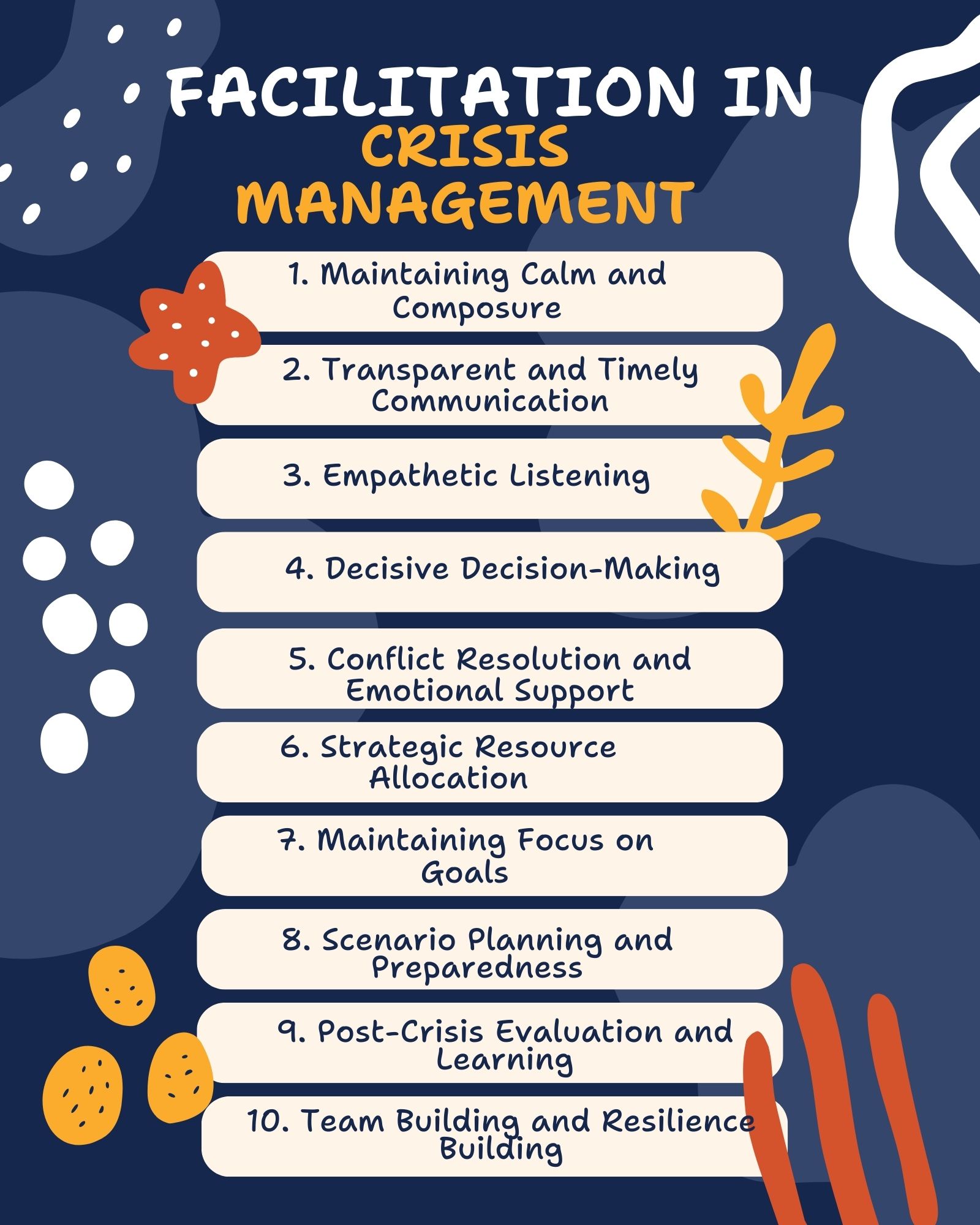
3. Empathetic Listening
Empathetic listening involves not only hearing what team members are saying but also understanding and acknowledging their feelings and concerns. Facilitators should actively listen to individual worries and anxieties, offering a compassionate ear. Validating emotions and demonstrating understanding fosters trust and creates an environment where team members feel heard and supported.
4. Decisive Decision-Making
Crises often demand swift decision-making. Facilitators, in consultation with relevant stakeholders, should make informed decisions promptly. Decisiveness is vital; indecision can lead to confusion and panic among team members. Facilitators must weigh available information, consider potential outcomes, and make decisions that prioritise the team's and organisation's well-being.
5. Conflict Resolution and Emotional Support
Crises can escalate tensions within teams. Facilitators must be skilled in conflict resolution, addressing disputes promptly and effectively. Moreover, providing emotional support to team members who are struggling emotionally is crucial. Facilitators can organise support sessions or counselling services, demonstrating care for the team’s emotional well-being.
6. Strategic Resource Allocation
Facilitators should efficiently allocate resources, such as manpower, time, and technology, to address immediate needs and priorities. Effective resource management ensures the team can focus on critical tasks without unnecessary hindrances, streamlining the crisis response process.
7. Maintaining Focus on Goals
During a crisis, it’s easy for teams to lose sight of their objectives. Facilitators should remind the team of their overarching goals and help them stay focused on achievable milestones. By breaking down larger objectives into manageable tasks, facilitators can instil a sense of purpose and direction, motivating team members to work toward tangible outcomes.
8. Scenario Planning and Preparedness
Facilitators can guide teams in creating crisis response plans and conducting scenario planning exercises. By simulating potential crisis scenarios and discussing responses in advance, teams are better prepared to handle actual emergencies. Facilitators can facilitate these exercises, encouraging team members to brainstorm creative solutions and test the feasibility of their strategies.
9. Post-Crisis Evaluation and Learning
After the crisis has passed, facilitators play a pivotal role in conducting post-crisis evaluations. By analysing the crisis response—what worked well and what could be improved—teams can learn valuable lessons for future situations. Facilitators should lead these discussions, emphasising a blame-free environment that encourages honest reflection and continuous improvement.
10. Team Building and Resilience Building
Facilitators can incorporate team-building activities specifically designed to enhance resilience during crises. These activities can strengthen team bonds, improve communication, and foster a shared sense of purpose. Resilience-building workshops and discussions help team members develop coping mechanisms and adaptability, preparing them for future challenges.
In times of crisis, facilitators emerge as pillars of strength, providing guidance, reassurance, and direction. By embodying these strategies, facilitators can lead teams through the storm, fostering unity, resilience, and a shared commitment to overcoming challenges. Effective facilitation in crisis management ensures the team’s survival and paves the way for growth, learning, and increased resilience in the face of future adversities.
Conculsion
To support trainers and team leaders in enhancing their facilitation skills, we offer a course titled ‘How to Build a Cohesive Team for Excellence’, where you will gain valuable facilitation skills to foster strong connections and unleash your team's potential. Learn how to effectively fit individuals into a team, navigate conflicts, define team roles, and lead with an internal focus of control. Develop trust, enhance communication, and harness the power of diverse personalities for win-win relationships. Gain insights into team dynamics, delegation, productivity, and motivation. Discover the art of facilitation to unite your team as one cohesive unit and empower each member's success. Plan for future development and leverage feedback and mentoring to drive continuous improvement. Make sure to check out the course; we’d love for you to join us!






